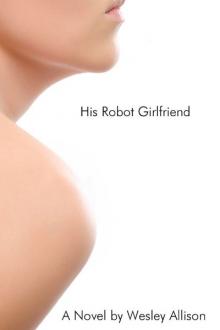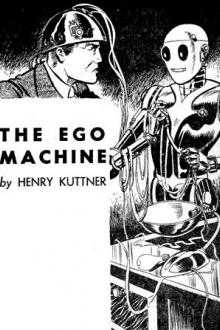The Boy Who Fell from the Sky, Jule Owen [classic romance novels txt] 📗

- Author: Jule Owen
- Performer: -
Book online «The Boy Who Fell from the Sky, Jule Owen [classic romance novels txt] 📗». Author Jule Owen
“Are you sure you want to? What if you get caught?”
“Na, no bother. I’m curious now, anyway.”
When his mother gets home, he’s sitting in the kitchen, staring at the beebot he’s placed on the table in front of him. Mr Lestrange and his library have got to him.
Hoshi is dazed with tiredness and preoccupied, but then, she always is these days. Leibniz serves her dinner, and she starts to eat in silence, intent on her food.
After a while, she looks up, remembering herself, and says to Mathew, “How was your day? You did stay in, didn’t you?”
“Yes, I stayed in.”
She nods slightly and carries on eating.
“So what did you do all day all alone in the house with no school? Were you working on your dragons?”
“Actually, I was working on that,” he indicates with his head the little adapted crop pollinator.
“What is it?”
“A beebot.”
“A what?”
“Here. Hold your hand flat.” He carefully places it on her palm. “It’s a miniature robot. I had the idea in our group class on Thursday. It doesn’t seem much, but I’m able to fly it using software in the Darkroom. It has inbuilt cameras.”
“It’s amazing. So tiny.”
“Actually, it’s a 3D print of an industrial model for pollinating crops from a blueprint on the Nexus. I made it a little prettier and added the cameras.”
She puts the beebot back in his palm. “It’s wonderful, but isn’t it work? Shouldn’t you be doing something different on your day off?”
“I enjoy doing these things.”
“Did you exercise? Did you go for a run using the holovision?”
Mathew shakes his head. “I was too busy.”
“I’m not sure this curfew is good for you. You need to do some exercise – otherwise, we’ll be having our GP ringing up wanting to review your medibot records, threatening to cancel your insurance. At least, play an active game or something. Anything to get you moving.”
“Okay, I will. I promise.”
“Did you do anything else? Speak to anyone?”
Mathew recalls Eva and Wooden Soldier. “No,” he says.
“I hope this curfew is over soon and we can get back to normal. You need to see people.”
“Do you think it likely now, with the war?”
She sighs, “No. No, I don’t.”
your road. Or you. Have you thought of that?”
14 Chips
DAY SIX: Saturday, 27 November 2055, London
It’s his mother's car and his mother's thick-necked guard. Mathew and Hoshi sit in the back facing one another across the table. The dragons are curled up, piled on top of each other on Mathew’s lap. One of them is growling in its sleep.
“We’re lucky to be called so soon,” Hoshi says. “The longer people have to wait to get their biochip, the more difficult it’ll be for them.”
“I suppose Panacea arranged it for you?”
They stop at the newly erected roadblock at the end of their street while the police check their ID cards and speak to the driver. Then they leave Pickervance Road and pass the boarded-up shops. There is new broken glass on the pavements.
The common is a hive of activity, with military vehicles, police vans parked all over the place and people being herded from their shacks and makeshift shelters into buses and other vehicles.
“Where do you think they’re taking them?” Mathew asks his mother, but she shakes her head.
A mile from their house, there’s a makeshift passport office in tents and marquees on land belonging to Woolwich Artillery. They are dropped at the gates to the barracks and directed through the barbed-wire-topped chain-link fence to join a long queue of people.
They make it inside one of the tents. A woman in uniform takes their ID cards, scans a list on her Paper, and checks them in.
She smiles at them reassuringly. “No need to worry. Everything is in order. Please take a seat.”
She waves them through into the tent, where there’s a waiting area. They sit at the back. A digital numbering system summons each person in the queue in turn via their Lenz. One by one people are called and disappear through a flap in the tent into another room.
Mathew and Hoshi wait their turn.
He sees Clara online on Consort and pings a message to her.
“Being chipped,” he says.
“Ouch. I have my appointment next week. Are you okay?”
“Not sure.”
“Call me later if you want to chat.”
“Thanks.”
“No problem.”
Suddenly there are raised voices in the next room. Two of the soldiers standing to one side in the waiting room glance at one another and rush through the tent flap. A few minutes later they burst into view with a struggling man grasped between them.
“You are fascists!” the man is shouting, his voice hysterical. “This is fascism! You cannot do this! Let go of me!”
He slips free, but the soldiers immediately grab him again. They struggle, and he falls to the floor; one of them sits on him, and the other one ties his hands behind his back.
“Bastards!” the man spits, between his teeth. His red, angry face is squashed on the ground. Mathew remembers the guard in front of Gen Lacey’s house and feels sick to his stomach.
Swearing and protesting, the man is taken from the tent. A little later, one of the soldiers is standing near Mathew’s seat. Mathew leans across and whispers to him, “The man you arrested, what did he do?”
The soldier smiles at him, good-humoured enough, conspiratorial. “Least said, soonest mended, eh?”
Mathew’s mother’s number is called. She stands and smiles at him. “Don’t worry. It will all be fine,” she says and disappears through the tent flap.
A few minutes later, his own number floats before him with an invitation to join the main tent. A solider lifts the tent flap for him. There is another tent beyond, partitioned into three rows of interview booths, separated by tall freestanding panels. As he’s led to his booth, he passes his mother seated in front of a table, a man in a suit talking to her and working away at a Paper, a woman in a lab coat standing to one side, preparing something on the top of a tall trolley. He’s urged forward and directed into a booth with another woman in a lab coat and another man behind a desk.
The man lifts his gaze, unsmiling, and stares at Mathew with suspicious, appraising eyes for a moment past politeness, and then says, “You are Mathew Erlang?”
“Yes.”
“Sit down.” The man turns to his Paper and starts to work at it. “ID card,” he says, staring at his screen.
Mathew pulls his ID card from his pocket and places it on the desk. Still focusing his eyes on his Paper, the man grasps it, scans it with a barcode reader, and then puts it through a shredder.
“Nurse,” the man says.
“Roll up your sleeve,” the nurse says to Mathew. She is no friendlier than the man behind the desk. She is cold in her uniform. Her skin has goose bumps. The weather is turning, as it does, suddenly and with no warning. There is no heating in the tents.
The nurse has a needle attached to a wire, which in turn is attached to a machine at the top of the trolley. She swabs Mathew’s arm roughly and plunges the needle into his median cubital vein. The machine makes a series of beeps.
“Confirmed,” the nurse says.
“Congratulations,” the man behind the desk says, glaring at Mathew from his Paper. “You are who you say you are. You’re lucky you have medibots. Your mother’s corporate healthcare plan, I suppose. It makes this whole process a lot quicker.”
The nurse presses a cotton pad with disinfectant onto the puncture wound on the inside of Mathew’s arm and puts his fingers across it, indicating he should hold it there.
“I’m going to ask you some questions, while the nurse prepares your chip,” the man says. “You are not British.”
“I am British. I was born here.”
“You don’t look British.”
“You mean I’m not white? Neither is 66% of the population.”
The man is smiling slightly. “Your father was Danish. Your mother is of mixed Chinese and Japanese lineage.”
“Yes.”
“The Chinese connection is worrying, don’t you think? Given the war?”
“My mother is a British citizen.”
“I know. But she was born in China. It must be confusing for you both, this war.”
“In what way?”
“Who to support. Who do you support?”
“I live here.”
“That’s an evasive answer.”
“I am British.”
“Don’t think me rude, but I won’t be the last person asking you these questions. A better response would be, ‘I support Britain, America, and her allies and will do all in my power to ensure they win this war.’ Something along those lines.”
Anger rises within him. He thinks of the man being pinned to the floor in the waiting room and the guard attacking him in Gen Lacey’s garden. Taking a long controlled breath, he tries to suppress the blood flushing from his neck to his face.
“I believe in this country,” Mathew says.
The nurse takes the wad of cotton from Mathew’s arm, replaces it with another, and covers it with a plaster. “Bend forward.” She moves him so his head is bowed and loosens his shirt from around his neck, pulling back the material. He tries to turn to watch what she is doing. She forces his head forwards, firmly. “You’ll experience a small sting,” she says.
Something cold presses against his skin, and then there is a hard punch and a sensation something like an insect bite. He draws his breath sharply between his teeth.
“All done,” the nurse says.
“Congratulations,” the man across the desk says again. “Welcome to the world of the living. Your bioID is active immediately. You will find it has a number of useful purposes, apart from allowing you to continue to live in your home. There’s information on our web site, as well as a store where you can buy compatible applications and appliances. You may go,” the man says, smiling a small, pained smile.
Mathew walks back to the waiting room, where his mother is sitting. He draws his fingers across the back of his neck, where there is a spreading numbness. There’s also a small lump there, like the lump in O’Malley’s neck, where he has his ID chip.
“Okay?” his mother says, standing.
Nodding his response, he’s not sure at all.
Back in his room, Mathew is sitting on his bed with his back to the wall recalling the morning. He can feel the chip under his skin, or at least he imagines he can. Somewhere in an office building, in a grey cubicle overhung with bad strip lighting, an SIS workstation running complex algorithms is registering his new bioID and assimilating all the data that’s available about him, making connections, categorising, assessing, and rating him for risk. A computer has recorded his movements back from Woolwich. It knows he’s now sitting in his bedroom. It knows when he logs on to the Nexus. It knows that his heart is beating a little too fast, that he is anxious, agitated. But it doesn’t know, yet, what he is thinking and what he is planning to do.
As he stares at the rotating lunar landscape cycling on the





Comments (0)